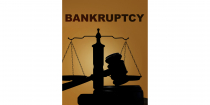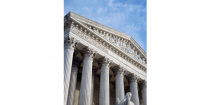Category: Chapter 7

The Dead (and Their Bankruptcy Estate) Cannot Hold Property Under Recent Ninth Circuit Bankruptcy Appellate Panel Decision
I recently had the pleasure of working with my colleagues Benny Roshan and Jillian Berk on an appeal before the Ninth Circuit Bankruptcy Appellate Panel (B.A.P), which tested the ever-evolving intersection between bankruptcy law and probate and trust law. In re Rens, __ B.R. __ , No. AP 19-90067-LA...

Clear Thinking Required When the Chips Are Down
One important attribute of any successful entrepreneur or business owner is knowing when to enter a new line of business or invest in equipment or employees to bolster an existing, growing service line. Another (perhaps even more important) attribute is knowing when to stop spending time, money and effort...

When Contracts and Bankruptcy Collide, a Short Term May Be Better in the Long Term
As we learned during the downturn in 2008, the economic climate can change rapidly. When things are going well, many businesses forget the lessons of the past. No matter what industry your business is in, there may be occasions when you are asked to enter into a relatively long-term...

Beware of the ABL Trap: The Challenges of Retail Chapter 11 Debtors and Asset Based Lending
An asset-based loan (“ABL”) is often the financing of choice for retail borrowers – and for good reason. In its simplest form, an ABL is a credit facility, usually in the form of a revolving line of credit, the availability of which is based exclusively on the value of...

What 2017 May Bring for the Restructuring Community
We asked some of our financial advisor colleagues to give us brief readouts on what they felt 2017 has in store for us now that we have gotten beyond the inauguration and into the first weeks of the Trump administration. Their thoughts follow: We have been seeing a lot...

December 1, 2016 Revisions to the FRBPs: Taking the Bite Out of the Core-Noncore Distinction
On December 1, 2016, something extraordinary happened. No, it was not president-elect Trump visiting another Carrier air conditioning factory in Indianapolis. It was an event that made no headlines and caused no stir. The Federal Rules of Bankruptcy Procedure were silently amended to remove all references to “core” and...

What Might a Trump Administration Mean for Bankruptcy Lawyers?
Inauguration is still about 2 months away, but it is not too early to begin thinking about what the Trump Administration will mean for commercial lawyers in general and bankruptcy lawyers in particular. Bankruptcy Reform? We are not hearing anything about a push for bankruptcy reform as part of...

November Surprise? Ninth Circuit Resurrects Post-Default Interest
The additional “default interest” owed when a borrower defaults under a loan agreement is a technical but highly critical part of any lending arrangement. This important “default interest” was the subject of a recent Ninth Circuit decision in which the Circuit made a nearly 180-degree u-turn away from its...

Producers Beware: What happens when your movie distributor files bankruptcy? Part 2.
In my blog article on August 9, I focused on some of the issues that licensors need to be aware of as they license IP rights, including the concept of allowing distributors to include “damages only” clauses in the distribution agreements. The second issue that often arises in distribution...

9th Circ. Panel Bolsters Trustees’ Reach-Back Powers
Editor’s note: this post originally appeared in Law360 . In a recent decision, the United States Bankruptcy Appellate Panel of the Ninth Circuit resolved what it described as an issue of “first impression” in the Ninth Circuit — whether or not the two-year statute of limitations provided by Section 546(a...

Report from the BHBA’s Review of the Three Bankruptcy-Related Supreme Court Decisions
The Beverly Hills Bar Association’s Bankruptcy Section recently held a program discussing the three recent bankruptcy-related Supreme Court decisions: Law v. Siege l , Executive Benefits Insurance Agency v. Arkison (In re Bellingham) (redux of Stern v. Marshall ), and Clark v. Rameker (regarding inherited IRAs and exemptions). The program was...

Supreme Court Issues Decision in Law v. Siegel, Eliminating Ability to Impose Surcharge on Exempt Property Unless Explicitly Authorized by Bankruptcy Code
On March 4, 2014, the Supreme Court issued a unanimous opinion in Law v. Seigel , Case No. 12-5196, 571 U.S. ___ (2014) holding that the bankruptcy court used its equitable powers in contravention of Bankruptcy Code section 522 by ordering the $75,000 protected by the debtor’s homestead exemption...

